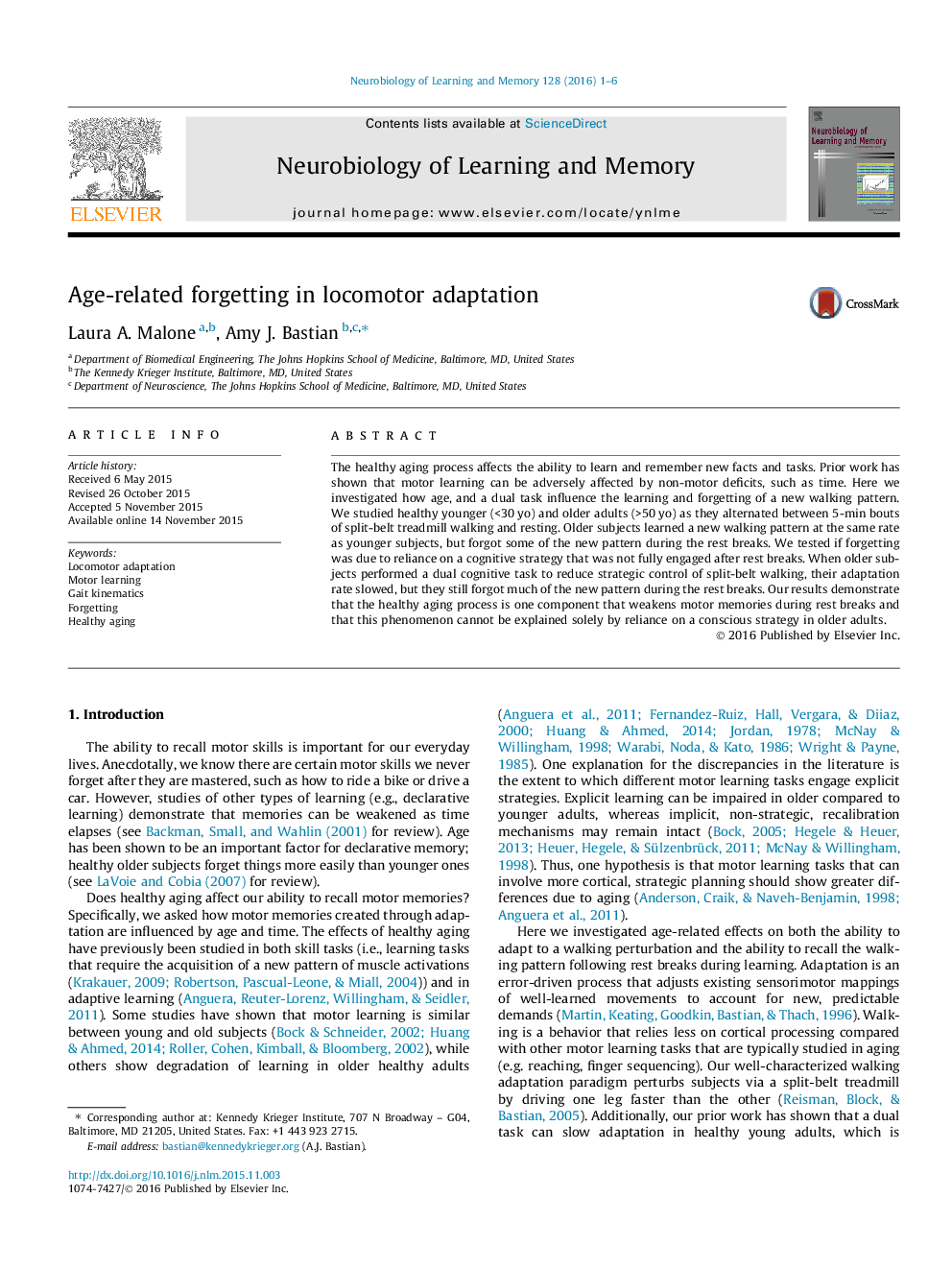| کد مقاله | کد نشریه | سال انتشار | مقاله انگلیسی | نسخه تمام متن |
|---|---|---|---|---|
| 936487 | 1475147 | 2016 | 6 صفحه PDF | دانلود رایگان |
• Older subjects can learn a new walking pattern at the same rate as younger subjects.
• Older subjects forget some of the new pattern during short rest breaks.
• Forgetting cannot be explained by excessive reliance on a conscious strategy.
• Healthy aging weakens motor memories during rest breaks in motor learning.
The healthy aging process affects the ability to learn and remember new facts and tasks. Prior work has shown that motor learning can be adversely affected by non-motor deficits, such as time. Here we investigated how age, and a dual task influence the learning and forgetting of a new walking pattern. We studied healthy younger (<30 yo) and older adults (>50 yo) as they alternated between 5-min bouts of split-belt treadmill walking and resting. Older subjects learned a new walking pattern at the same rate as younger subjects, but forgot some of the new pattern during the rest breaks. We tested if forgetting was due to reliance on a cognitive strategy that was not fully engaged after rest breaks. When older subjects performed a dual cognitive task to reduce strategic control of split-belt walking, their adaptation rate slowed, but they still forgot much of the new pattern during the rest breaks. Our results demonstrate that the healthy aging process is one component that weakens motor memories during rest breaks and that this phenomenon cannot be explained solely by reliance on a conscious strategy in older adults.
Journal: Neurobiology of Learning and Memory - Volume 128, February 2016, Pages 1–6
